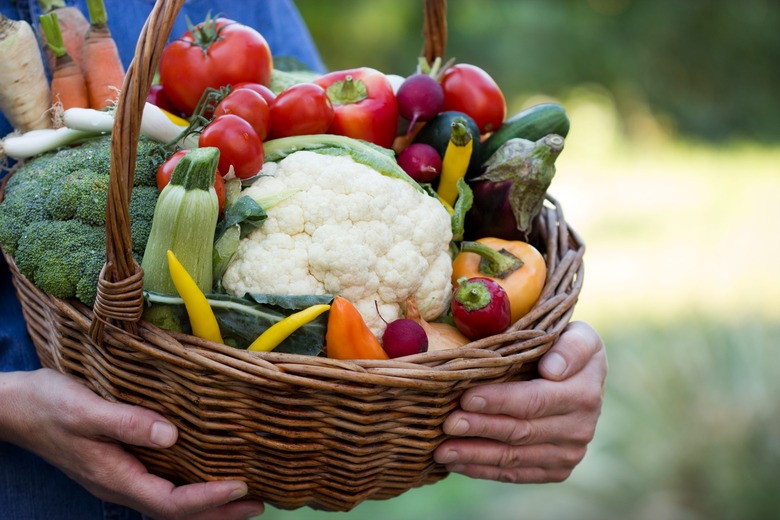Here's Why Organic Food Might Not Be Worth The Price
When you buy organic produce, meat, or dairy products at your local farmers market or Whole Foods, you probably feel good about yourself, even though you're paying more. Why? Because organic food is better for you, for the livestock, and for the environment... right?
According to a video narrated by Bjørn Lomborg, president of the Copenhagen Consensus Center, a U.S.-based economics think tank, and published by PragerU, a conservative website co-founded by radio host Dennis Prager, almost everything we think we know about organic food is a lie. Lomborg breaks down the ways the organic farming industry is allegedly fooling us into paying more for a product that isn't necessarily going to change the world (or make you any healthier):
Lomberg is the author of The Skeptical Environmentalist, a controversial 2001 book devoted to debunking many generally accepted environmental theories and predictions, and espousing the use of cost-benefit analysis in environmental matters.
The assertions by the organic food industry that Lomborg claims to refute include:
"Organic produce is healthier for you." A 2012 study by researchers based at Stanford University showed that organic produce is not nutritionally superior, even though a blind research test from Cornell University showed that people are willing to pay up to 23 percent more because they believe organic produce is better for you. (It should be noted that many of the supposed health benefits of organic food have to do with the absence of pesticides and other potentially harmful chemicals, not solely with its nutritional value.)
"Animal welfare is much better on organic farms." A five-year study from Oregon State University found that animals are no happier or healthier on organic farms than on traditional farms. Pigs and poultry are able to spend time outdoors, but this leaves them open to pathogens and predator attacks, Lomborg argues.
"Organic food is better for the environment." Lomborg explains that organic farming uses less energy but more land because fewer pesticides and fertilizers are used, making it less efficient than standard farming.
Learn more about why organic food is so expensive and weigh for yourself whether or not it's worth it.
